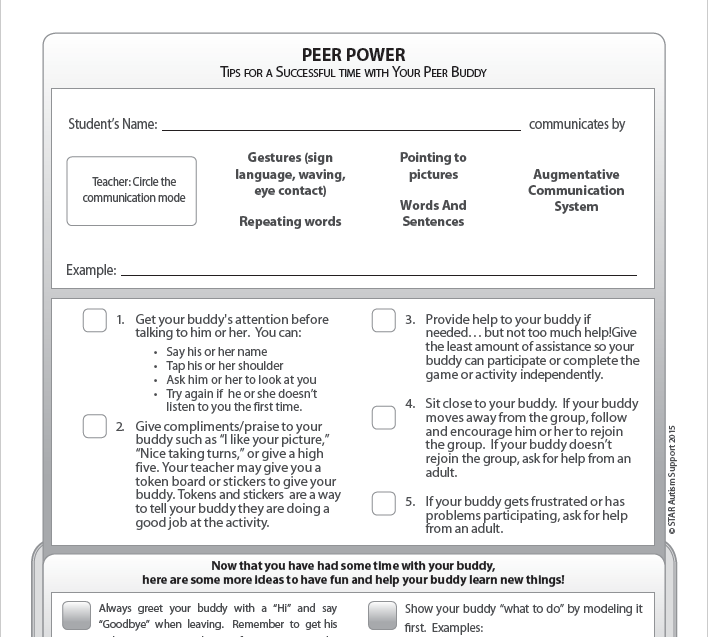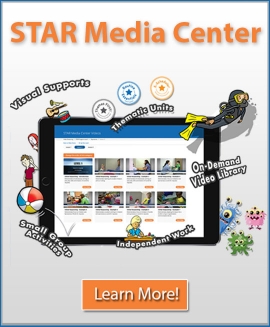Peer Power!
Build capacity within your classroom by expanding the roles of everyone! In addition to educators, typical peers can be an incredible resource within your classroom and school. Bring peer power into your classroom by creating activities and lessons that can be guided by peers. Peers can be used as tutors to assist instructors with individual or group academic lessons plans. Peers can also be used to expand social interactions between students with ASD and their classmates.
The National Autism Center’s National Standards Report identified Peer Training Packages as an established intervention for students with Autism Spectrum Disorders. The focus of these interventions is teaching peers to sustain play and social interactions with classmates. Goals include, increasing the frequency of interactions between peers and children with ASD and reducing adult support during these interactions to create more natural interactions, Neitzel, J., Boyd, B., Odom, S. L., & Edmondson Pretzel, R. 2008).
Preplanning activities and providing peers “checklists” can save time and give the peers important information needed to play and socialize with classmates with special needs.
- Schedule “buddy-time” every day at a consistent time and location.
- Create and organize activities that appeal to peers and a wide-range of learner abilities.
- Place the activities in tubs or bins with all materials organized for easy access.
- Provide visual supports to encourage turn taking between peers.
- Provide peers an easy to use checklist. See below for an example of a peer buddy checklist from the STAR Media Center.
Click the image below to download the Peer Buddy Checklist
References
National Autism Center (2009). National Standards Project findings and conclusions: Addressing the need for evidence-based practice guidelines for Autism Spectrum Disorders. Randolph, MA: National Autism Center.
Neitzel, J., Boyd, B., Odom, S. L., & Edmondson Pretzel, R. (2008). Peer-mediated instruction and intervention for children and youth with autism spectrum disorders: Online training module (Chapel Hill: UNC-Chapel Hill, National Professional Development Center on Autism Spectrum Disorders, FPG Child Development Institute). In Ohio Center for Autism and Low Incidence (OCALI), Autism Internet Modules, www.autisminternetmodules.org. Columbus, OH: OCALI.


